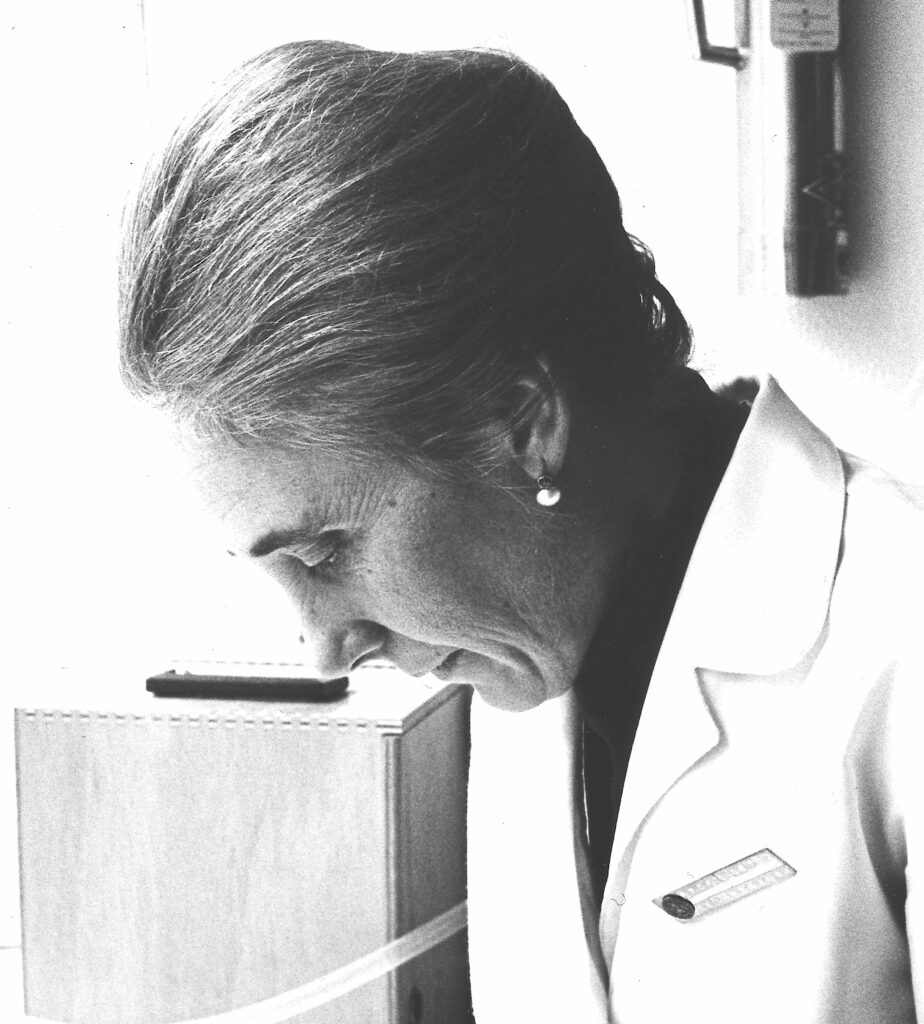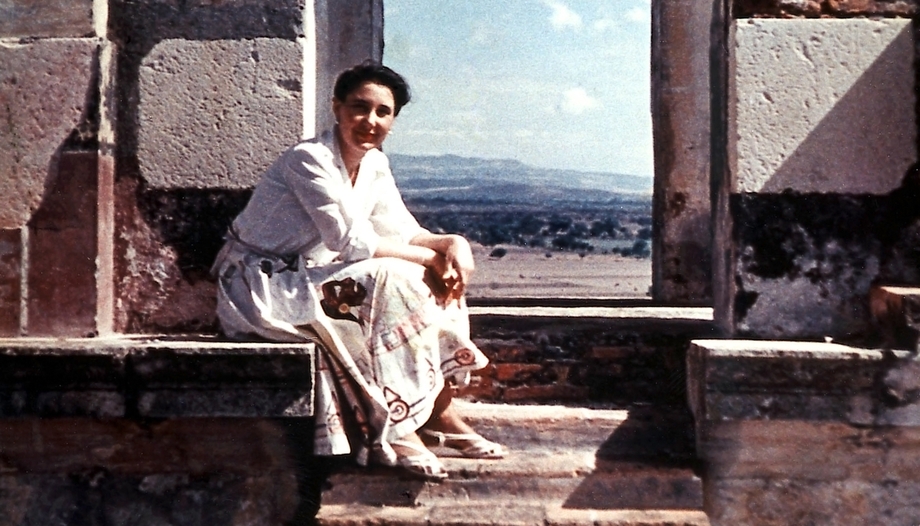On May 18, 2019, thousands of people flocked to the Palacio Vistalegre Arena in Madrid. It was nine in the morning, but joyful smiles and excited voices surrounded that venue in Carabanchel with a single motive: the beatification of Guadalupe Ortiz de Landázuri.

D. in chemistry, professor of industrial master's degree and numerary professor of the Opus DeiGuadalupe stands out, in the words of Pope Francis, for being an example of the "sanctity of normality. 44 years after her death, citizens from Singapore, Mexico, the United States, Nigeria and other countries traveled to Madrid to celebrate the great step in the cause of canonization of this woman.
What was it about Guadalupe that brought so many people together in one place? It is not only that she was the first beatified laywoman belonging to Opus Dei. For José Carlos Martín de la Hoz, diocesan postulator of the cause of canonization of the professor, one of the reasons can be found in the words that Pope Francis said about her. The Pontiff defined her "as the saint of joy, but a joy with content, because she always sought to love God and others, and therein lies the source of the peace she spread around her.
Saint of joy and normality
That smile of Guadalupe is precisely what was seen in all the posters of Vistalegre. Those who attended the event met the face of a woman who shone for her "virtue of patience," the diocesan postulator emphasizes.
Vistalegre was attended by those who at some point were impressed by this "scientific researcher", "laboratory woman" and "patient teacher", a person "gifted with a great understanding for listening and guiding others".
And while there is no doubt that Guadalupe Ortiz de Landázuri is important for those close to Opus Dei, her life also has something to say to all Catholics. As the postulator of the cause of canonization points out, "we are going through a complex stage in the history of Western civilization, for we are at the end of one stage and the beginning of another. The new culture of globalization that is emerging will be Christian and, therefore, in accordance with the dignity of the human person, if we Christians follow the examples of life and enthusiasm of the saints".
Guadalupe Ortiz de Landázuri and Opus Dei
These are examples like Guadalupe, whom St. Josemaría Escrivá invited to travel to Mexico to promote the work of Opus Dei and share the faith with those he met. After leading several projects in Spain, the founder of Opus Dei wanted him to work on the other side of the Atlantic. And so he did. In 1950 he traveled to Mexico to open the first residence for university students in the country.
From that moment on and for five years, Guadalupe continued working for the women of Mexico, helping peasant women, young and adult women, not only spiritually, but also professionally and personally.
In 1956, St. Josemaría again asked for her help and, on this occasion, the professor traveled to Rome to assume some tasks of government in Opus Dei. Regarding the collaborative relationship between the founder of the Work and Guadalupe, José Carlos Martín de la Hoz says that "St. Josemaría always treated Guadalupe with particular confidence, since she was one of the first women who followed him after the Spanish Civil War and, as she was a professional and mature woman, he was able to rely on her".
Guadalupe Ortiz de Landázuri was well aware of her vocation to Opus Dei. Her commitment to her work was united, as the diocesan postulator explains, with "the mandate of charity". For this reason, Martín de la Hoz believes that "she will undoubtedly go down in history as a woman who knew how to be attentive to detail with everyone she met, and that is what Opus Dei is all about: loving God and others in the midst of the world".
In the middle of the world
That knowing how to be in the middle of the world is what those who came to Vistalegre on May 18, 2019 admired. It is also the reason why the Official Association of Chemists of Madrid has named Guadalupe as its official patron saint. A decision that the dean, Iñigo Pérez-Baroja, justifies "for her love of chemistry, for her strong Christian conventions, for her example of the sanctity of normality, for being the first expatriate entrepreneur of social works, for her ability to communicate and disseminate her scientific knowledge".
Therein lies part of the legacy of Guadalupe, who did not want to be a woman of science or a woman of faith. Like St. Therese, she wanted everything: God, the world, contemplation and action....
Guadalupe Ortiz de Landázuri dedicated herself to loving the world passionately, responding to the invitation of St. Josemaría Escrivá. That is what was celebrated at Vistalegre, joy in normality. It was a celebration of a woman whose words could be uttered by any Christian today: "I want to be faithful, I want to be useful and I want to be a saint" (Letter to St. Josemaría Escrivá, February 1, 1954).
On that May 18, 2019, in Vistalegre, the life of Guadalupe Ortiz de Landázuri was celebrated, who "with the joy that flowed from her conscience as a daughter of God (...) put her many human and spiritual qualities at the service of others, helping in a special way other women and their families in need of education and development" (Letter Pope Francis to the prelate of Opus Dei for the beatification of Guadalupe).









